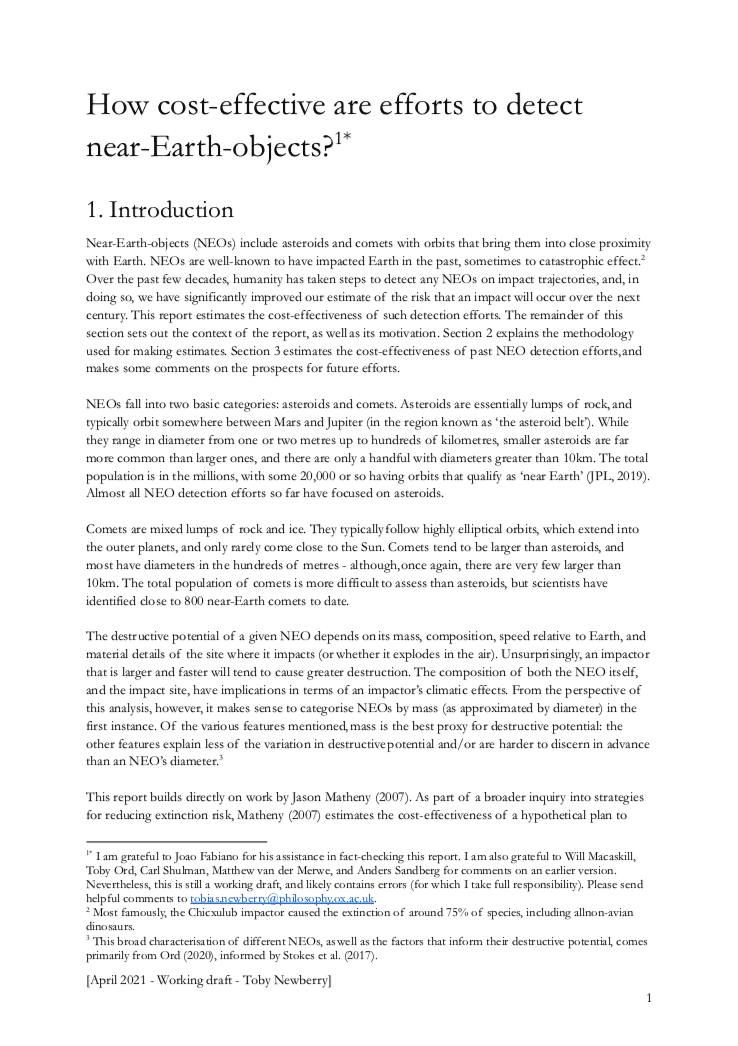How cost-effective are efforts to detect near-Earth-objects?
Toby Newberry (Future of Humanity Institute, University of Oxford)
GPI Technical Report No. T1-2021
Near-Earth-objects (NEOs) include asteroids and comets with orbits that bring them into close proximity with Earth. NEOs are well-known to have impacted Earth in the past, sometimes to catastrophic effect.2 Over the past few decades, humanity has taken steps to detect any NEOs on impact trajectories, and, in doing so, we have significantly improved our estimate of the risk that an impact will occur over the next century. This report estimates the cost-effectiveness of such detection efforts. The remainder of this section sets out the context of the report...
Other working papers
Are we living at the hinge of history? – William MacAskill (Global Priorities Institute, Oxford University)
In the final pages of On What Matters, Volume II, Derek Parfit comments: ‘We live during the hinge of history… If we act wisely in the next few centuries, humanity will survive its most dangerous and decisive period… What now matters most is that we avoid ending human history.’ This passage echoes Parfit’s comment, in Reasons and Persons, that ‘the next few centuries will be the most important in human history’. …
The end of economic growth? Unintended consequences of a declining population – Charles I. Jones (Stanford University)
In many models, economic growth is driven by people discovering new ideas. These models typically assume either a constant or growing population. However, in high income countries today, fertility is already below its replacement rate: women are having fewer than two children on average. It is a distinct possibility — highlighted in the recent book, Empty Planet — that global population will decline rather than stabilize in the long run. …
Estimating long-term treatment effects without long-term outcome data – David Rhys Bernard (Paris School of Economics)
Estimating long-term impacts of actions is important in many areas but the key difficulty is that long-term outcomes are only observed with a long delay. One alternative approach is to measure the effect on an intermediate outcome or a statistical surrogate and then use this to estimate the long-term effect. …

